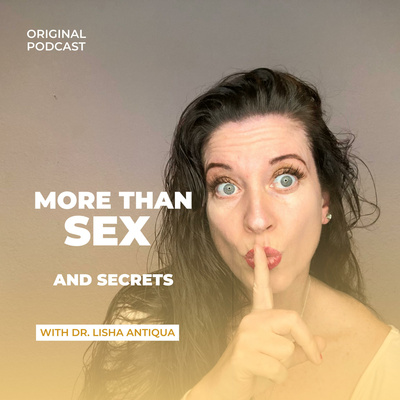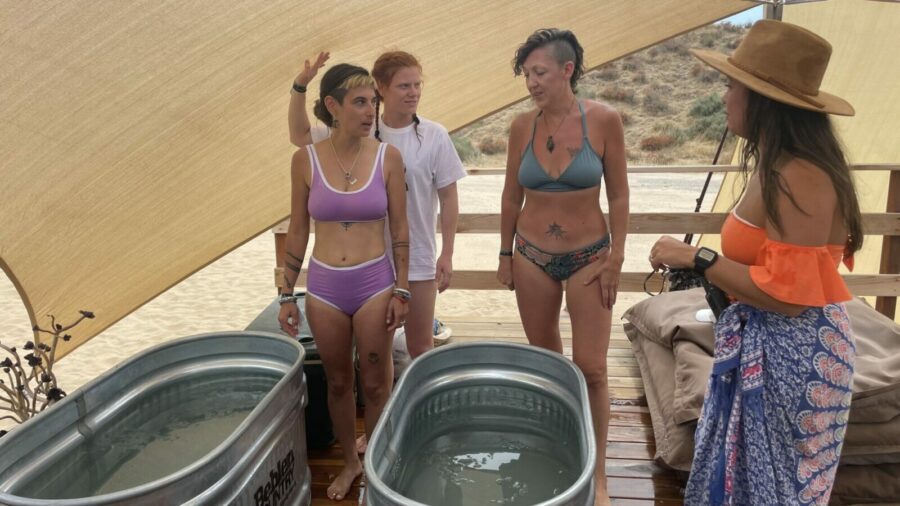When people hear the words “holistic” or “integrative,” this may conjure up many different images, both positive and negative. I consider myself to be a psychiatrist who utilizes holistic and integrative concepts in both the diagnosis and treatment of my patients. I thought it would be a good idea to explain these how these concepts apply to mental health and my practice.
The Wiktionary definition of “holistic” is “relating to a study of the whole instead of a separation into parts.” If you imagine attempting to diagnose and treat a human being, you can see how this concept could be applicable. For example, let’s consider the case of a patient who has something called “diabetic peripheral neuropathy.” This is a complication of diabetes, which can cause pain and tingling in the feet. If a patient came to a doctor and complained of foot pain, the doctor could focus on the foot alone. They could ask questions about the foot, examine the foot, and provide a pain cream to apply to the foot. However, this would be doing the patient a huge disservice, as the real cause of the foot pain is diabetes, which is diagnosed using a blood test. In addition, diabetes can be treated, and this treatment could potentially improve the foot pain. Simply applying a cream to the foot would miss the true cause of the pain, would likely not help, and would likely lead to the patient only becoming more and more sick.
The same is true of mental health complaints. If a patient comes to me and complains that they are feeling depressed, but I don’t ask them about their family life, or what toxic habits they may have, or what their relationships are like, I may not diagnose and treat their problem appropriately. In addition, as with the analogy above, if I simply write them a prescription for an antidepressant medication, I may be attempting to treat a symptom, but end up completely missing the cause. Hence the depression may not improve, and may continue to worsen.
Dr. Alice Lee provides an excellent definition of holistic psychiatry on her website:
Holistic Psychiatry values each individual as a unified whole, consisting of mental, emotional, physical, spiritual, social, and environmental forces that simultaneously and equally affect health and well-being. A holistic psychiatrist is trained in the use of conventional, nutritional/ functional/ orthomolecular medicine, and mind-body/energy medicine, to heal individuals at all levels of being, to restore a state of optimal mental and physical health, as naturally and efficiently as possible.
Okay, so what does “integrative” mean?
The Arizona Center for Integrative Medicine provides a great definition for “integrative medicine” on their website:
Integrative Medicine (IM) is healing-oriented medicine that takes account of the whole person, including all aspects of lifestyle. It emphasizes the therapeutic relationship between practitioner and patient, is informed by evidence, and makes use of all appropriate therapies.
In addition, they list the “Defining Principles of Integrative Medicine:”
- Patient and practitioner are partners in the healing process.
- All factors that influence health, wellness, and disease are taken into consideration, including mind, spirit, and community, as well as the body.
- Appropriate use of both conventional and alternative methods facilitates the body’s innate healing response.
- Effective interventions that are natural and less invasive should be used whenever possible.
- Integrative medicine neither rejects conventional medicine nor accepts alternative therapies uncritically.
- Good medicine is based in good science. It is inquiry-driven and open to new paradigms.
- Alongside the concept of treatment, the broader concepts of health promotion and the prevention of illness are paramount.
- Practitioners of integrative medicine should exemplify its principles and commit themselves to self-exploration and self-development.
As you might be able to see now, the principles of integrative medicine apply equally well to physical as well as mental health and healthcare.
Let’s use the patient example above to show how one could use a holistic and integrative approach to the diagnosis and treatment of a patient.
The patient is a 44 year old woman named Anna who came to see me complaining of depression. I take a holistic approach and ask Anna about all aspects of her life. I find out that Anna’s depression began after she was raped when she was 38. At that time she became so overwhelmed by what happened that she was barely able to sleep. Her entire health then began to deteriorate. Anna stopped dancing, which she previously enjoyed doing daily. She started eating lots of junk food and stopped cooking her own meals. She withdrew from her family and friends and eventually lost her job. Anna became very scared of leaving her apartment and hence hadn’t gone outside in months. She was feeling overwhelmed and hopeless and even started having thoughts of death.
With this example, it is possible that an antidepressant medication may help with some of Anna’s symptoms. However, if that was her only type of treatment, there is a chance that her symptoms might not improve, and they could potentially even become worse. Utilizing a holistic and integrative approach to her treatment might look something like this:
- Engaging Anna in psychotherapy so that she could talk about her trauma and her associated thoughts and feelings
- Improving Anna’s diet to cut down on junk food and increase her intake of foods which have been shown to reduce depressive symptoms
- Helping Anna get back into dancing, which has been shown to have a variety of mental health benefits
- Starting Anna on supplements such as Omega-3 fatty acids to improve her mood and melatonin to improve her sleep
- Incorporating other treatments such as acupuncture or EMDR to help with Anna’s depressive and trauma-related symptoms
- Helping Anna to re-connect with her friends, family and her community
Utilizing this type of comprehensive approach is much more likely to help Anna, than is simply prescribing an anti-depressant alone.
I hope this sheds some light on why I use a holistic and integrative approach with all my patients at Free Range Psychiatry.
Have more questions? Feel free to shoot me an email, anytime: DrCampbell@FreeRangePsychiatry.com






With our health, we have to take care of all of the components to it and not just physical. I think that having good mental health is one of the more important things that we could do. I’d be sure to go with someone who has training as it’s not all that easy to diagnose.
I appreciate Dr. Lee’s explanation that a holistic psychiatrist is one who treats their patients both mentally and physically. I’ve been struggling lately with depressive episodes and low physical energy. Perhaps I should look at visiting a holistic psychiatric specialist myself.
Yes this whole Holistic Mental Health is The Truth..it’s a long involved story..but I had hopefully well meaning relatives stage an Intervention because I was having a breakdown without drugs. They tricked me into no way to get my $,shelter food or love. I wouldn’t be treated w such abuse and disrespect so I ran from them.They had cops follow me,telling them I’m crazy and am a Missing Person! I told the cops what they did that nearly led me to freeze to Death during lockdown Covid sun zero weather in Chicago
HOMELESS street people saved my life and a couple restaurants fed me.Finally I got access to my $ to go home by my brother, who had almost fallen for this deadly way to correct me of my deep emo pain and hurt..he picked me up at Greyhound and got an apt for both of us..I love and forgive these ignorant,frustrated and stupid relatives, but there is No Contact until they acknowledge what they’ve done,and Grown spiritually and educated themselves. My faith in Christ sustained me.Im still in shock that they were willing for me to perish Iinthe danger and elements of downtown Chicago just because I wouldn’t take pills that don’t work and dull my conscious awareness..It’s very sad,but I’ve released them to God and let them go thier way until they come to a place of Spiritual Maturity and learn that was a crime against my Constitutional Rights and close to unintentional manslaughter really,of thier OWN old friend and Mother..
They’re Alchoholics and need Therapy and to stop blaming me and emo Abusing me because they won’t own thier own.wrong choices. I do and they took advantage of my open heart to be real and not an authoritarian parent. THANK GOD I found this website that proves what I’ve deeply known all along I am doing well drug free and with the Love of my brother and Groovy laid back and real church friends I’m Making . I’m singing in church soon and practicing my singing again,and have begun Mindful Meditation and Yoga, Releasing forgiveness and love when I get a flashback of the he’ll I just escaped that lasted 12 yrs with a hurting young adult son who emo abused me regularly drunk and lashing out w Verbal abuse that has still left my heart broken..
I’m moving on towards healing,recovery,new healthy boundaries w family and Peace in Christ’s Presence..Christ Consciencesness, bringing much Intuitive understanding and deep spiritual insight,as to how this all happened and seeing areas where must take care of myself and be assertive, rather then caving to ignorant hurting abusive kids who just don’t yet understand how to Love Mom..I see where I messed up and helped create what happened, but have forgiven myself.
I am reminded by God how much he Loves us that we are ok..just learning how to Love..
I just got a new job and all is well and will be well! Thank you again for your Great Work that encourages Knowledge,Research Understanding Acceptance and Love for one another as we grow towards Healing and Inclusion..
Hello,
Thank you for the amazing explanation of what holistic psychiatry is. I am a college student pursuing a career in Osteopathic Medicine and Holistic Psychiatry. I am deeply interested in mental health and how it impacts everyday life. I strongly believe that one’s well-being is connected to their physical, emotional, and spiritual health. I also believe that patient treatment should be integrative, focusing on the needs of the patient. I was wondering as an undergraduate student, what experiences or opportunities should I seek to better prepare me for this field and offer me more insight into this field?
Thanks for your comment, Caitlin! If you can shoot me an email at doc@freerangepsych.org, I’d be happy to chat with you more!
After reading your example of Anna I am wondering why you didn’t approach her repressed emotions of the rape. Unless you address that in talk therapy.
Do you work in repressed emotions?
Yes, we use psychotherapy as a tool to help almost all of our patients!
I and my mother are super impressed.with your approach! I literally read this whole article to her. I have spent 20 years being experimented on by allopathic doctors who have literally thrown random prescription drugs at me to no avail. I also spent 16 years in an extremely abusive institution and am recovering from ptsd as a result. All of these people labeled and ignored the real problem. But in you and your approach I see a true change from that. I would love to be treated by your organization and my family and I are willing to work out a payment plan for something revolutionary like this. Please get back with me if you have any suggestions. Thanks!
Hi there, You’ve done a fantastic job. I’ll certainly digg it and personally suggest to my friends.
I’m sure they will be benefited from this web site.